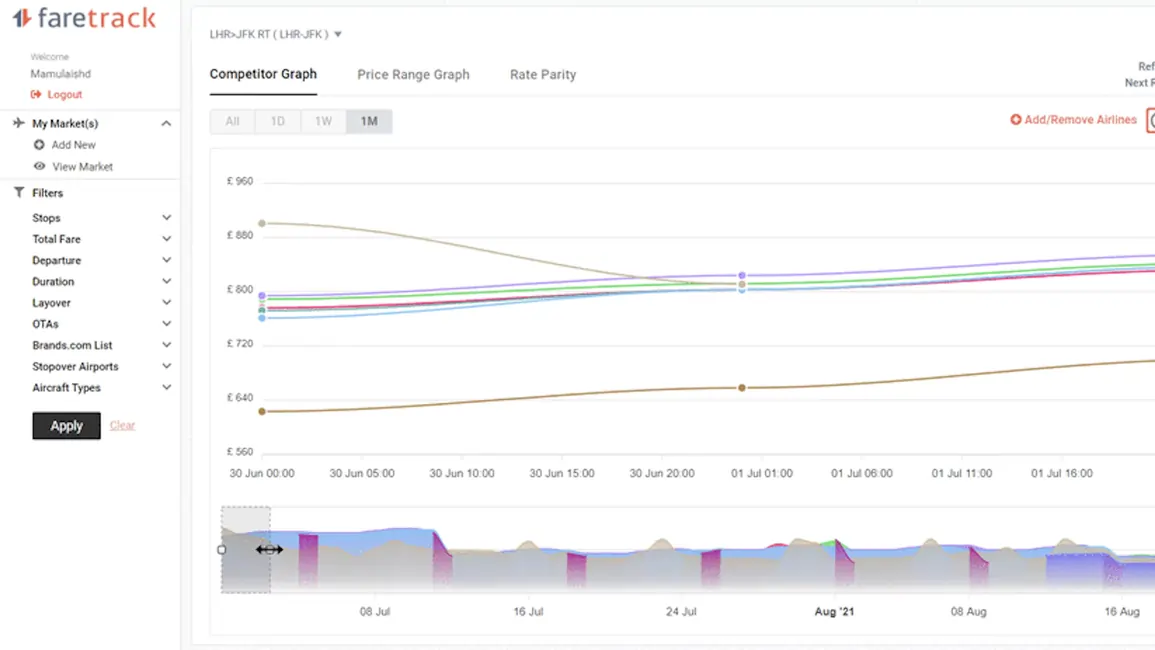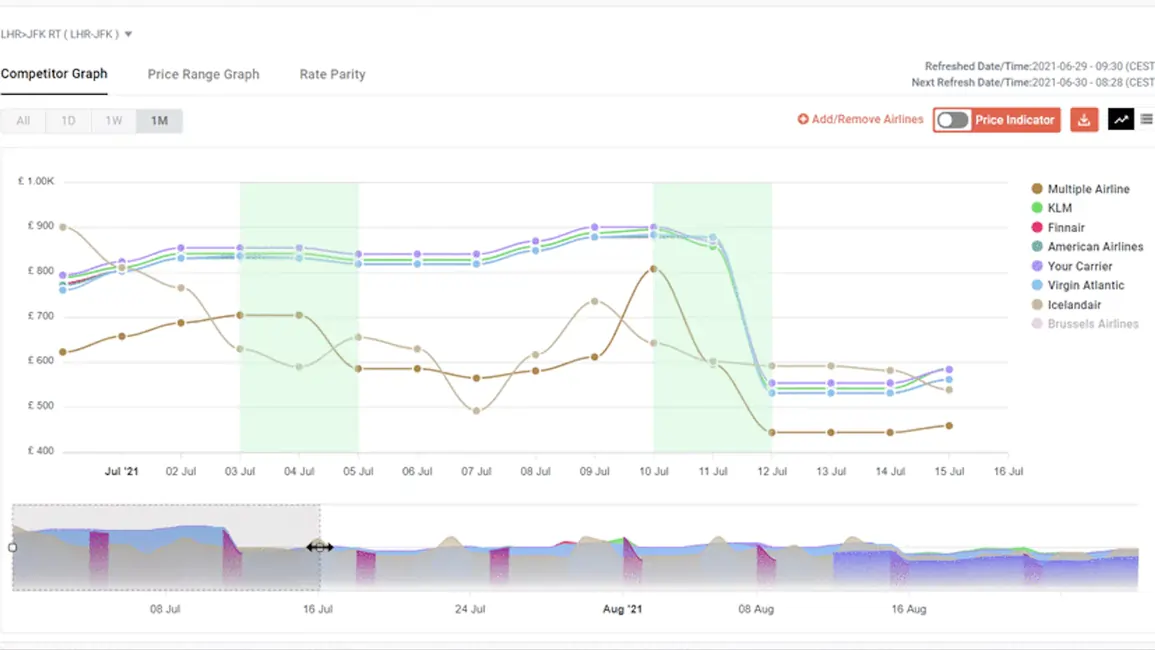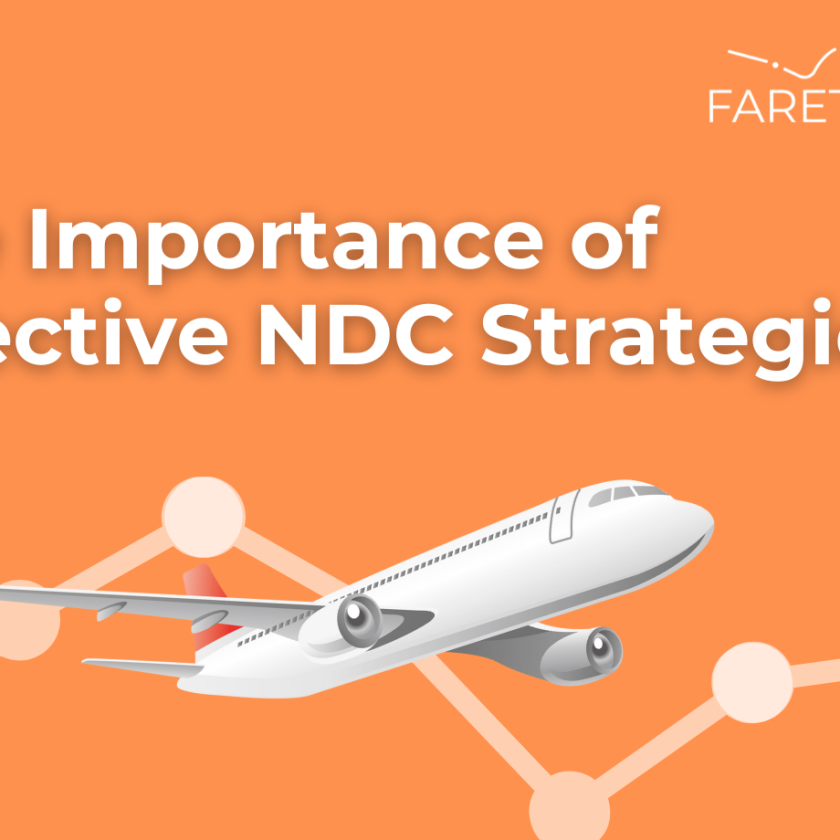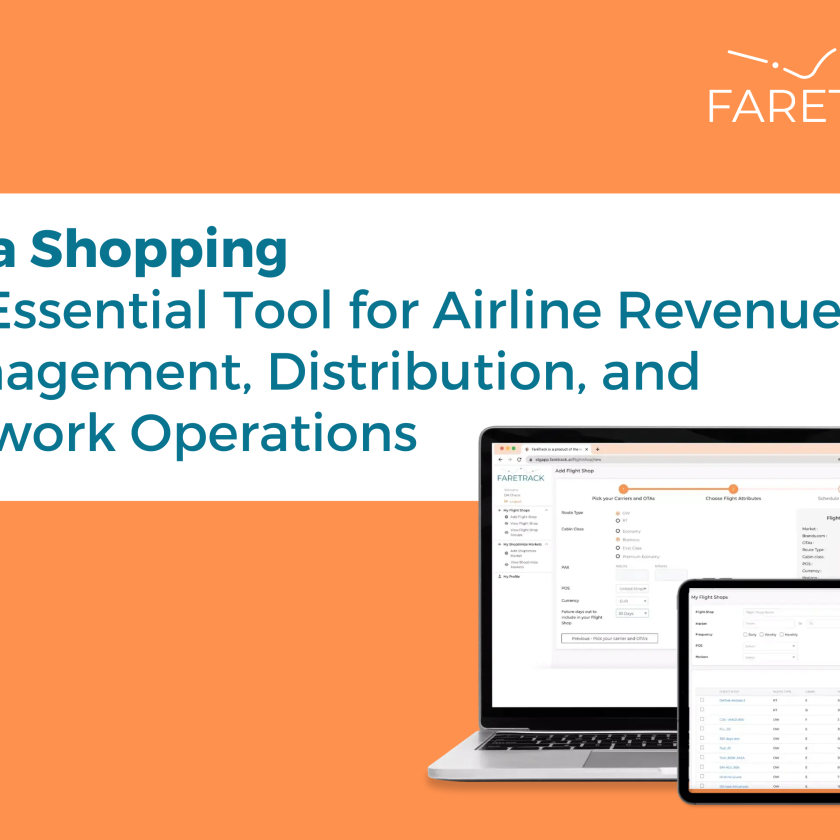Airlines are exposed to more competitive data points than ever before. The plus side of this is that with more competitor intelligence available, they can identify more opportunities for revenue growth.
However, the amount of data available presents a significant problem. How do you derive value from vast amounts of unstructured data? Let’s take a look at a few ways business intelligence and visualization helps airline revenue managers secure a competitive advantage.
Actionable Insights
Many pricing decisions are made either on inaccurate data or assumptions. These are poor foundations for accurate and effective decision-making. Business Intelligence allows revenue managers to analyze trends robustly, benchmark against competitors, and confidently make the correct data-driven strategic decision each time.

Greater Time Efficiency
Time and efficiency are fundamental reasons airlines look to use business intelligence. For example, if you wanted to analyze every competitor on a specific route, manually doing so is incredibly labour-intensive. With business intelligence, such a process can take minutes. You can also instantly identify new changes in the data, without having to spend hours re-analyzing.
Business intelligence also allows airlines to free up staff time to focus on the critical task of increasing revenue.
Gaining a Competitive Advantage
Business Intelligence allows you to get an accurate and complete picture of exactly what your competitors are doing. For example, FareTrack has information on 1M+ flight fares and global schedule tracking for any airline from any source. Access to this level of data allows you to benchmark and deliver the right fares to customers at the right time.

Increase your profitability
Poor pricing strategies can lead to customers not booking with you and choosing a competitor. If your price is too high, business intelligence and competitive fare visualization provide an opportunity to reduce your price and increase sales.
The flip side is that you might be pricing your fares too low, and you can identify an opportunity to increase fares through competitive benchmarking.
Business Intelligence also frees up staff time to focus on key tasks, leading to greater efficiency and profitability.
To conclude
Business intelligence solutions make it possible to break down vast amounts of data into actionable insights that power better decision-making. However, not all business intelligence solutions are created equally. It is vital that you choose a solution that is accurate, complete and timely, with easy-to-understand visuals, such as FareTrack.




